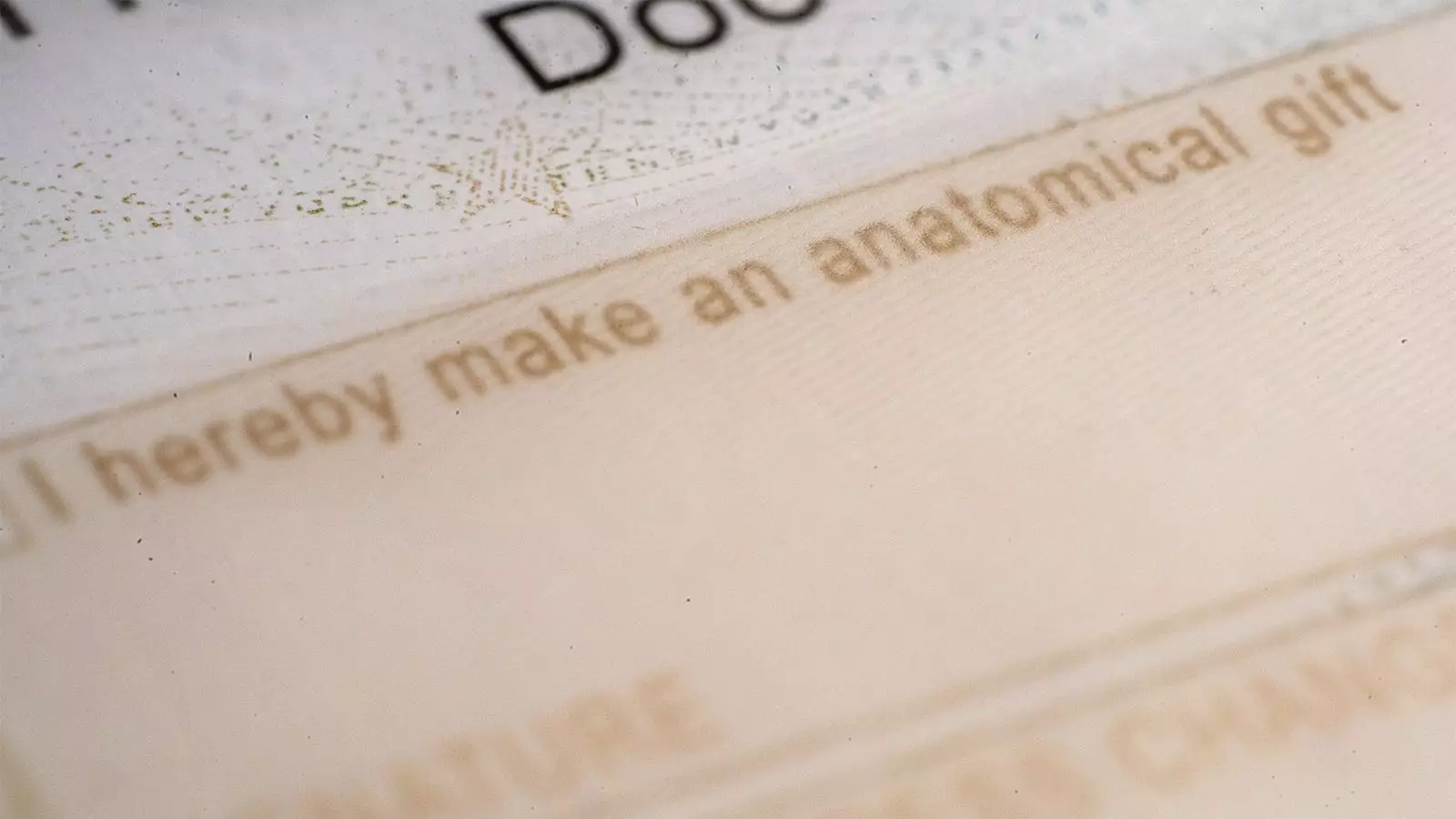In recent months, the organ donation landscape has undergone a tumultuous shift, ignited by disturbing reports surrounding a Kentucky case where a man was mistakenly declared dead. This incident, which emerged from a congressional hearing, unveiled a deeper issue regarding how death is determined in the context of organ donation. While the man in question ultimately remained alive, the publicity surrounding the case has led to a profound erosion of trust in organ donation practices, causing a notable surge in individuals revoking their donor registrations.
Organ donation is fundamentally grounded in public trust. Dorrie Dils, the president of the Association of Organ Procurement Organizations, succinctly noted the sensitive nature of this trust, stating, “Organ donation is based on public trust; when it is eroded, it takes years to regain.” This statement captures the crux of the problem—without public confidence in the integrity of the medical process, the entire organ donation system teeters on the brink of crisis.
The aftermath of the Kentucky incident reveals how quickly misinformation can disseminate and affect public perception. In the United States, stats from Donate Life America illustrate a staggering increase in the number of individuals opting out of organ donation: an alarming average of 170 individuals a day removed themselves from the national donor registry in the week following the Kentucky revelations. This is a tenfold increase compared to the same period in the previous year, pointing to a direct correlation between public fears and their willingness to donate.
Beyond individual states, these worries are echoing across the Atlantic. France, which operates under a presumption of consent for organ donation unless one opts out, saw a tenfold increase in individuals registering their objections to donation during the same time frame. The French Biomedicine Agency reported a sudden spike from roughly 100 daily refusals to 1,000, underscoring how widespread concerns about organ donation procedures are becoming. As Régis Bronchard, MD, insightfully remarked, “this reflects anxiety and incomprehension among the general public,” potentially leading to dire consequences for those awaiting transplants.
At the heart of this issue lies the process by which medical professionals declare death, a vital component of the organ donation system. Doctors are trained to determine two primary types of death: cardiac death, where circulation ceases, and brain death, marked by the irreversible cessation of all brain function. Yet, the standards and tests used to confirm death can vary significantly across institutions, which raises troubling questions about consistency and accuracy in this critical assessment.
Daniel Sulmasy, MD, PhD, a bioethicist, highlights the necessity of rigorous testing protocols and well-defined guidelines to ensure that every practitioner adheres to the highest standards. “All doctors must do the right tests and do them well,” he emphasized, suggesting that inconsistencies in practice could undermine public trust and endanger lives.
This variability in medical protocols has garnered attention and calls for reform. A growing consensus suggests that the incorporation of stricter testing requirements might be beneficial. Sulmasy further proposed that comprehensive assessments could provide the public with reasonable assurances regarding the care and rigor involved in declaring someone deceased.
As the fallout from the Kentucky case continues to unfold, the need for a proactive response is more pressing than ever. The investigation by federal agencies aims to elucidate the specifics surrounding the incident, and the call for transparency from organ procurement organizations is critical to restoring public confidence. Announcing findings publicly and addressing any shortcomings are essential steps that must be taken to reaffirm the commitment to established ethical standards.
Moreover, establishing a robust education campaign could play a pivotal role in addressing public fears and misinformation. Engaging communities and providing clear, transparent information about the organ donation process, how death is established, and the rigorous protocols in place can help bridge the gap in understanding and foster a climate of trust.
In essence, the path forward requires a commitment to integrity in the medical community, coupled with a thorough reassessment of procedures and engagement strategies. Only through collective efforts can we rebuild the trust that is vital for the very survival of thousands waiting for organ transplants. The stakes could not be higher, as the lives of many depend on the goodwill of those who are willing to donate.

Leave a Reply